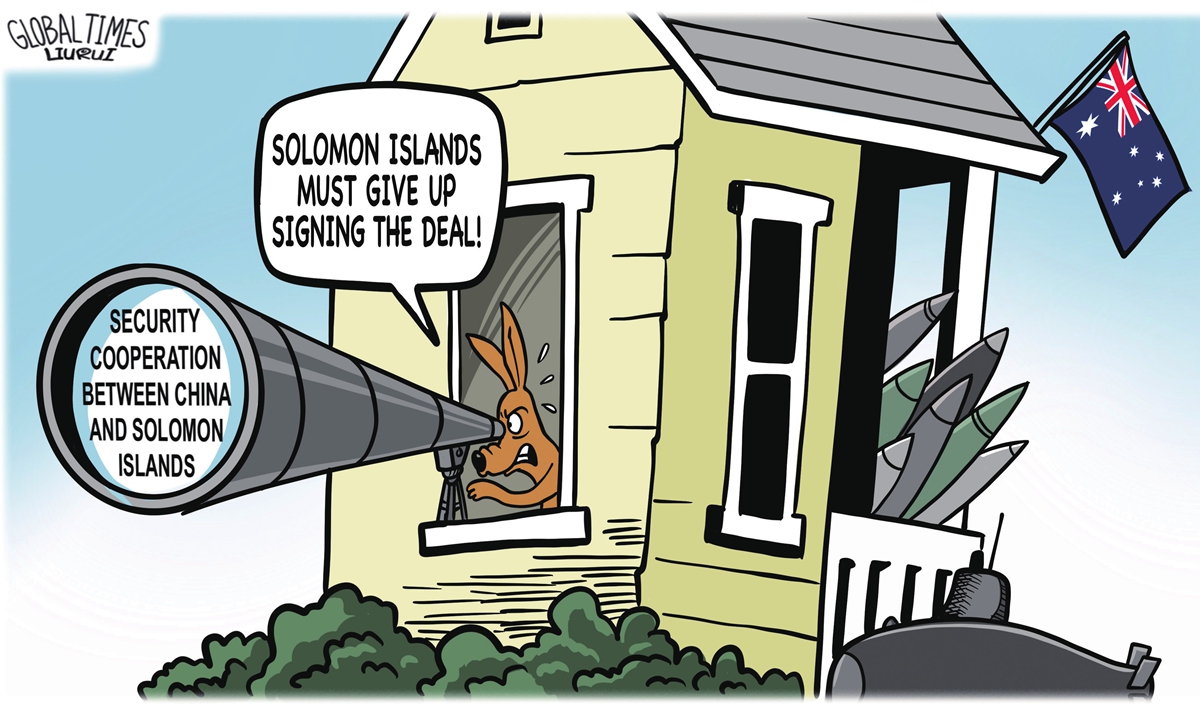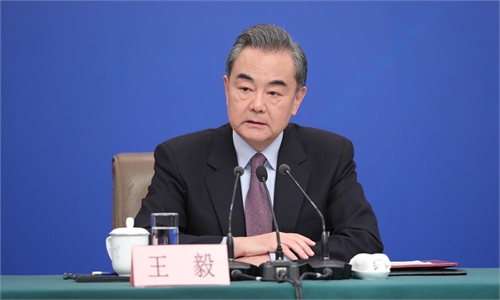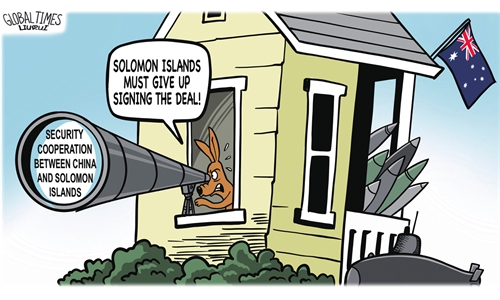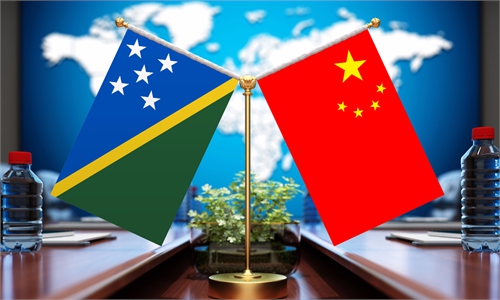
Illustration: Liu Rui/GT
Australia's Minister for Foreign Affairs Marise Payne on Sunday said there are concerns about a "lack of transparency" with the draft security pact between China and the Solomon Islands. She noted that the matter is "something that should be discussed in the broader Pacific Island[s] Forum context itself" and that the "Pacific family" is best placed as responders to security issues in the Pacific region.The Pacific Islands Forum (PIF) is a regional cooperation organization in the South Pacific. Australia is the strongest member and the main supporter of the organization, having the most influence on its development. The Solomon Islands is only a member country and has no particular importance.
Most of the PIF member states haven't made public statements so far on the China-Solomon Islands security agreement. In addition to Australia and New Zealand, the Federated States of Micronesia (FSM) has also expressed "grave security concerns" to the Solomon Islands about its security pact with China, worrying the region would become the epicenter of a future confrontation between major powers. It should be noted, however, that the FSM, a freely associated state of the US, has close security and defense cooperation with the US.
But Australia does continue to lobby other Pacific Island countries against the China-Solomon Islands security pact. First, it is constantly pressuring and lobbying the Solomon Islands, with key members of the Australian government visiting the island country to change its position. Second, Canberra called leaders of countries like Fiji and Papua New Guinea to express concerns on the issue in an attempt to spread panic among them. Third, it also continues to address other Pacific Island countries, playing up the threat of the security pact.
What Payne stated on Sunday is just a pretext to obstruct the pact under the banner of multilateralism. The security cooperation between China and the Solomon Islands, a matter within the sovereignty of both countries, will contribute to the stability of the domestic situation in the Solomon Islands and even the South Pacific region. The "threat theory" of the security agreement is a hype of some countries for their own interests.
In fact, through the issue of the China-Solomon Islands security pact, Pacific Island countries can see perfectly how Australia attempts to take full control of regional affairs and restrict them from developing relations with non-regional countries. Fundamentally, this exposes Canberra's "Monroe Doctrine" in the South Pacific region - It treats the region as its backyard, where it stays extremely sensitive and alert to the existence of other major countries. This is why Australia has acted so strongly against the agreement between China and the Solomon Islands.
In Canberra's diplomatic language, the term "Pacific family" is often used to refer to countries in the South Pacific region. This implies that Australia and other regional nations are family members, so many affairs in the region are "family affairs" that should be discussed and resolved only among these countries. This is the logic behind Payne's suggestion to discuss the matter of the security pact in the "broader Pacific Island forum context itself."
But the truth is, the Solomon Islands is an independent country with the right to decide with whom to seek security cooperation. Moreover, the PIF, unlike the EU or ASEAN, is not a regional organization with a high degree of organization. It, therefore, has no right to interfere in matters that are within the sovereignty of its members. The so-called Pacific family is simply a propaganda slogan from Canberra; it doesn't actually exist.
Besides, the PIF is not capable of interfering in the issue of the China-Solomon Islands agreement as it's at the risk of collapse, a problem already giving it a headache.
In February 2021, dissatisfied with the results of the election for the Forum's Secretary-General, five members of the PIF - Palau, FSM, Kiribati, Marshall Islands, and Nauru - decided to withdraw from the organization. While the withdrawal was temporarily rescinded this February, saving the organization from falling apart, it is clear that handling such a crisis and strengthening unity among members is the immediate priority of the PIF.
The author is an assistant research fellow at the China Institute of International Studies. opinion@globaltimes.com.cn



